Individual Projects
Colton Baumler, BMCDB, PhD Candidate
The Modern, Practical Scholar
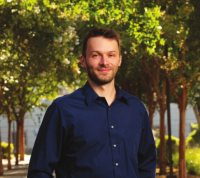
Project Summary:
The struggle of reading without clear guidance extended across the core pillars of graduate education: literature review, teaching, and data visualization. The absence of a standardized, accessible approach to managing these domains led to a search for practical solutions. Through conversations with colleagues and mentors, a systematic method eventually emerged—one that not only alleviated the burden but also inspired a desire to share these insights with others. This led to the creation of “The Modern, Practical Scholar” a multi-session curriculum designed to combat choice paralysis and cognitive overload. The program introduces scholars to the most effective free, open-source, and community-driven tools available for academic work. Through hands-on instruction, it offers structured workflows for literature discovery, management, reading, and curation tailored to specific scientific subfields. The result is an accessible, evolving, and continuously updated workshop series that equips scholars at all career stages with applied technological skills to enhance their research practices. Ultimately, the project delivers a flexible and customizable framework that fills a critical gap in early graduate education: foundational knowledge management for sustainable and effective scholarship.
Sabrina Mederos, Animal Behavior, PhD Candidate
Identifying and Advocating for the Expansion of Resources for Commuter Students at UCD
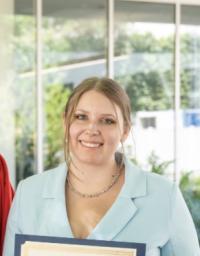
Project Summary:
Commuter students—those who travel regularly from outside the city to attend UC Davis—face unique challenges that can hinder their access to campus resources, sense of belonging, and academic success. Recognizing these barriers through personal experience, Sabrina Mederos initiated a project aimed at addressing the specific needs of this often-overlooked population. To ensure the project was grounded in real student experiences, Sabria drew on multiple sources: data from the 2023–2024 UC Davis Campus Travel Survey, outreach to student organizations and campus departments, direct conversations with commuter students, and collaboration with UC Davis Transportation and Parking Services (TAPS). This comprehensive approach helped identify both existing support systems and those that have been discontinued, such as the GoClub. The result was a tri-fold commuter resource pamphlet, designed using UC Davis branding and colors, and intended for distribution across campus hubs like the Transfer and Reentry Center and the Graduate Student Association. The pamphlet serves as a practical and affirming guide to help commuter students navigate campus life more easily. This initiative is envisioned as the foundation for a broader, ongoing effort. Future goals include developing an annually updated guide informed by continued student feedback and advocating for the revival or redesign of TAPS programs that previously supported commuting. Ultimately, the project seeks to reduce the daily stress of commuting and foster a stronger sense of connection, visibility, and support for commuter students at UC Davis.
Emmanuel Momoh, Geography, PhD Candidate
Cultivating Cultural Connectedness and Food Sovereignty Among International Student
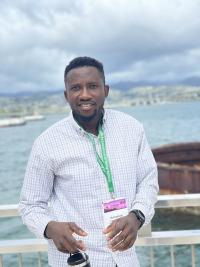
Project Summary:
When international students from low and middle-income countries relocate to high-income ones, they experience an abrupt shift in their food and sociocultural environment. This shift entails a notable transition from a more traditional, locally-based food environment to one that is modern and industrialized (Terragni e t al., 2014; Ibe-Lamberts, 2016; Paxton et al., 2016; Akingbule et al., 2021; Osei- Kwasi et al., 2023). As a result, international students often face difficulties in accessing culturally appropriate foods. The inability to eat familiar food impacts diet-related health and disrupts socio- emotional and cultural systems (Smith & Franzen-Castle, 2012; Okafor et al., 2014; Almohanna et al., 2015; Wu & Smith, 2016; Agyemang & van den Born, 2019). This is because food is cultural, and food culture forms a vital part of people’s identity, heritage, and how they maintain their health and sense of food security. Preliminary findings from UC Davis suggest that 81.8% of student respondents (n= 33) perceive access to cultural food from their home country as important to their food security and well-being. Despite the well-established importance of cultural food in maintaining food security, most food security initiatives and research simultaneously focus on access to healthy/nutritious food, ignoring the cultural perspectives of food security. Besides food, there is also a deviation from the more tight-knit, interpersonal communities that international students are accustomed to. So, they often lack a sense of belonging in their new environment, resulting in feelings of isolation and impacting their overall well-being.
Ste Traxler, Nutritional Biology, PhD Candidate
Science is Queer: A Cross-Disciplinary STEM Symposium for the LGBTQIA+ Community Symposium
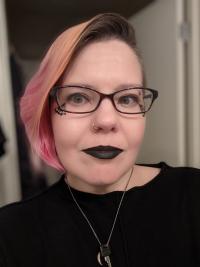
Project Summary:
Science is Queer was a one-day research symposium created specifically for graduate students and postdoctoral researchers who identify as members of the LGBTQIA+ community. The event focused exclusively on STEM disciplines, where queer individuals remain significantly underrepresented. It also prioritized graduate students and postdocs—groups that often lack access to the community-building resources more readily available to undergraduates. Recognizing that graduate school is one of the most demanding and isolating periods in an academic’s life, the symposium was designed to foster visibility, representation, and a sense of belonging. Despite the presence of LGBTQIA+ resource centers at many universities, support for graduate-level queer students is often minimal.
Science is Queer aimed to fill that gap by creating a space to celebrate the research and identities of queer scientists. The symposium, held on April 25th in the Walker Hall Gibeling Conference Room at UC Davis, featured 58 attendees and 28 presentations. These included a keynote address by Dr. Sam Diaz-Munos, six oral presentations by graduate students, and 21 poster presentations. Feedback from participants highlighted the event’s welcoming atmosphere and the rare opportunity to present research in a space where all fellow presenters were also members of the queer community. The event was supported by contributions from PFTF, the LGBTQIA+ Resource Center, and crowdfunding efforts, which helped provide refreshments and materials. Several organizations—including Grad Diversity, OSTEM, the Sacramento Area Science Project, and the LGBTQIA+ Resource Center—hosted resource tables to support attendees. Following the symposium, there has been strong momentum to expand the event in future years. Conversations are underway with the LGBTQIA+ Resource Center to support the formation of a dedicated LGBTQIA+ graduate student organization. Organizers are also working to establish a permanent home for the symposium, ensuring that Science is Queer becomes a recurring event that continues to build community, visibility, and support for queer graduate and postdoctoral researchers.
Angel Trazo, Cultural Studies, PhD Candidate
Kasamas at UC Davis & Demystifying Graduate School from a Filipino American Perspective
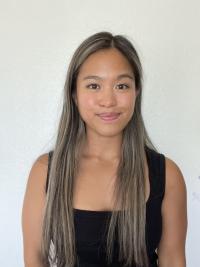
Project Summary:
The PFTF project, led by PFTF Fellow Angel Trazo, created the new registered student organization—Kasamas at UC Davis— a supportive and affirming space for Filipino American (Fil Am) graduate students and postdoctoral scholars. Open to scholars across disciplines and programs, the organization aims to foster community, promote retention, and support the recruitment of Fil Am individuals in academia. The group’s flagship event, Demystifying Graduate School from a Fil Am Perspective, was held on April 30th, 2025, in the Gibeling Room. The event was designed to support Fil Am undergraduate students considering academic careers by offering insight into the graduate school experience through a culturally relevant lens. The program featured a one-hour panel discussion with four Fil Am scholars (one postdoctoral researcher and three PhD students) representing fields such as Cultural Studies, Urban Planning, Public Health, and Nutrition Science. Panelists shared how their identities shaped their academic journeys and how they discovered their research interests. A Q&A session followed, allowing for deeper engagement with attendees. The second half of the event featured a catered dinner from My Burma, providing a relaxed setting for networking and community-building. The event drew 35 attendees, primarily Filipino-identifying students, with a few identifying more broadly as Asian American. Funding was provided through a $150 stipend and $750 in New RSO funding from the Graduate Student Association. Through this event, Kasamas successfully facilitated mentor-mentee connections between Fil Am graduate students and undergraduates. The organization hopes this initiative will contribute to a stronger sense of belonging among Fil Am students at UC Davis and encourage more undergraduates to pursue graduate education by showing them that they are seen, supported, and part of a growing academic community.
Team Projects
Neurodivergence in Academia Seminar Series: Supporting Students through Higher Education
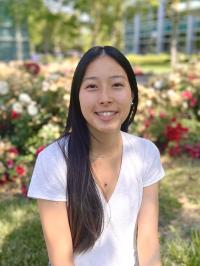
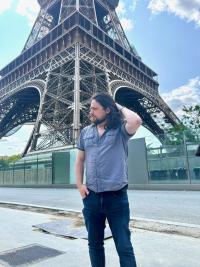
Quimby Lee, Neuroscience, PhD Candidate
John Paulus, Neuroscience, PhD Candidate
Project Summary: Neurodivergent students remain underrepresented and underserved in graduate programs, often facing unique challenges related to stigma, masking, and lack of adequate support. As part of the Professors for the Future (PFTF) program, this project aimed to raise awareness of these challenges and highlight the support systems available to help neurodivergent students thrive in academia. Two public seminars brought together students, faculty, and staff. The first seminar, "Neurodivergent Researchers Share Their Experiences," featured three graduate students and postdocs with neurodivergence who spoke candidly about navigating higher education. The second seminar, "Services and Resources Offered for Neurodivergent Undergraduate and Graduate Students," highlighted support available through the Student Disability Center, Counseling Services, and Accessible Assistive Technology. Both events encouraged open dialogue, normalized help-seeking, and emphasized the importance of mentorship, community, and informed counseling. Through these efforts, we hope to promote a more inclusive academic environment where neurodivergent students feel empowered to advocate for themselves and supported in their pursuit of success.
Thinking Big: How to use creative thinking to envision a research symposium
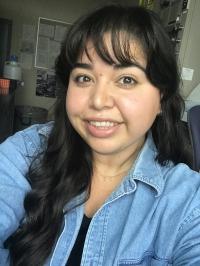
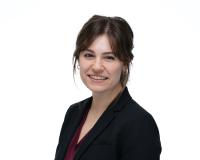
Rachel Moreno, Microbiology and Immunology, PhD Candidate
Eleanor Pressman, Animal Biology, PhD Candidate
Project Summary: This was a half-day mini symposium that took place on May 2nd, 2025, from 1–5 PM in Walker Hall. There were two keynote sessions and three breakout sessions. The central topic for all the sessions was creativity and what it looks like in science, especially at the graduate level. The first keynote was about design thinking in science, followed by three breakout sessions on different strategies that students can use to enhance creativity, the traits of a high-functioning multidisciplinary team, and how novices can uniquely contribute to scientific research. The symposium ended with a faculty panel, featuring members from both academia and industry. Alongside the symposium, student and campus organizations tabled, providing attendees with opportunities to learn more about available resources. We had a moderate number of attendees participating for the entire duration of the event (20– 30 attendees), with others attending select sessions of interest. All attendees appeared engaged in each topic, and some successfully networked with the speakers.
Building Bridges for Academic Success: Strengthening the UC Davis First-Gen Community Across Academic Levels

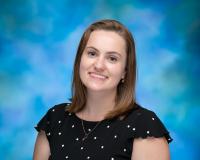
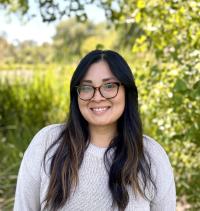
Nicole Halmai, Genome Center, Postdoctoral Scholar
Nicole Weronika Korzeniecki, Animal Behavior, PhD Candidate
Erika Milagros Bueno, Entomology and Nematology, Postdoctoral Scholar
Project Summary: First-generation scholars face tangible challenges, such as imposter syndrome, a lack of belonging, and a lack of familiarity with university culture, which can become exacerbated by an isolating, academic environment. Despite 37% of UC Davis undergraduates being first generation college students (Fall 2024), support and programming through the First-Generation Initiative (FGI) has dwindled overtime. This is especially true for first-generation graduate students and postdoctoral scholars. To address these issues, our PFTF fellows project group collaborated with the FGI to host a First Gen Spring Forum. The primary goals of this forum were to provide resources, networking opportunities, and solicit feedback on what our UC Davis first-gen community wanted to see moving forward for the FGI. All first-gen faculty, postdocs, and graduate students were invited to participate in this forum, where we networked over lunch, heard and related to the experiences of our first-gen panel members, and brainstormed as a community about our challenges, sources of support, and next steps.
The First Gen Spring Forum was highly successful in fostering a sense of community. The majority of attendees were graduate students, followed by faculty, postdocs, and staff, all of whom gave the forum high ratings. Remarkably, 83% of participants reported feeling more connected to the first-gen community afterward. Attendees especially appreciated the brainstorming activities and opportunities to share their experiences. Many expressed that the forum helped them realize their feelings of insecurity and not fitting in were common among first-generation students, and that it highlighted a strong need for connection with other first- gen scholars and allies. From the community brainstorming session, we identified the hidden curriculum of academia as the greatest challenge for first-gen graduate students. For first-gen postdocs and staff, allyship, finances, and the hidden curriculum of academia were equally identified as challenges. Faculty identified allyship to be one of their greatest challenges. At the same time, graduate students felt the greatest support through their mentoring and ally networks. Postdoc and staff expressed feeling supported by financial and funding resources, while faculty experienced support through community building. Interestingly, faculty viewed institutional support as both a challenge and a method of support. Overwhelming for both faculty and graduate students, community building was identified as the most important priority for continuing to support the first-gen community. Postdocs and staff believed greater awareness and access to resources and support for navigating the hidden curriculum of academia were the most important issues to focus on for supporting the first-gen community at Davis. Moving forward, we plan to increase the visibility of all academic levels of the first-gen community. The feedback from this forum will inform future FGI programming that will allow for long-term support of the first-generation experience at UC Davis.
Chat with an Editor: De-mystifying Academic Journal Publishing
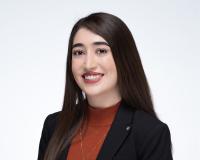
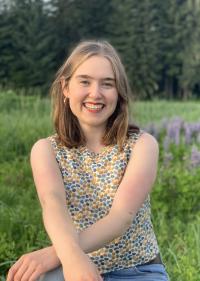
Elmira Louie, Comparative Literature, PhD Candidate
Laurinne Balstad, Environmental Science and Policy, Population Biology, PhD Candidate
Project Summary: This initiative was designed to address a critical component of the “hidden curriculum” in graduate education: understanding and navigating the world of academic publishing. While the importance of publishing in peer-reviewed journals is frequently emphasized—especially for those pursuing academic careers—graduate students often receive little to no guidance on how these journals function. This lack of transparency can lead to missed opportunities, increased stress, and delays in degree completion, ultimately making students less competitive for postdoctoral and faculty positions. To tackle this issue, the project introduced a structured workshop series aimed at demystifying academic publishing. Two discipline-specific sessions were held—one focused on the Humanities and the other on the Biological Sciences. Each workshop featured a panel of editors from prominent academic journals who shared insights on topics such as the peer review process, the role of editors, special issues, selecting appropriate journals, and responding to reviewer feedback. Following the panel discussions, attendees engaged in extended Q&A sessions, allowing early-career scholars to ask candid questions and receive direct guidance from experienced editors. These conversations fostered a collaborative environment and helped participants build the confidence and skills necessary to navigate the publishing landscape more effectively. To ensure the information remained accessible beyond the workshops, the project team developed a set of infographic guides and an FAQ document covering key aspects of academic publishing and writing book reviews. These resources, created in collaboration with a PFTF partner, are now available on the UC Davis Graduate Studies GradPathways website, providing ongoing support for graduate students and postdocs seeking to publish their work.
Transitioning from a PUI to Graduate School

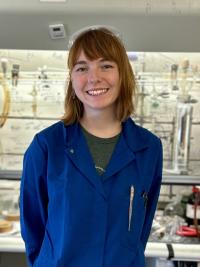
Charis Ramsing, Plant Pathology, PhD Candidate
Anna Vernier, Chemistry, PhD Candidate
Project Summary: Undergraduate students at Primarily Undergraduate Institutions (PUIs) often lack the exposure to graduate education that their peers at Research 1 (R1) universities receive. This gap can leave PUI students uncertain about what graduate school entails and how to navigate the application process. To address this disparity, a five-week mentorship program was developed and co-led by Anna Vernier and Charis Ramsing, specifically for undergraduates at Sacramento State. The program included three in-person meetings at Sacramento State, covering key topics such as the day-to-day realities of graduate school and strategies for building effective relationships with graduate advisors. To provide personalized support, eight undergraduate mentees were paired with eight current UC Davis graduate student mentors. Each pair was required to meet at least twice during the program to foster meaningful one-on-one connections. Feedback from participants was overwhelmingly positive. All mentees expressed appreciation for the program and found it to be highly valuable. By offering both structured guidance and individualized mentorship, the initiative helped demystify graduate education and empowered PUI students to pursue advanced degrees with greater confidence and clarity.
Publish or Parent? Navigating the Academic Family Building Process from Planning to Progeny
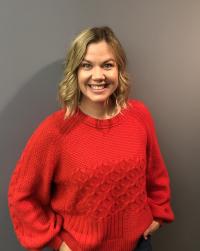
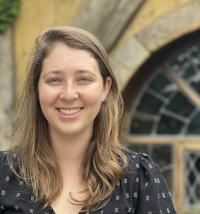
Diana Malarchik, Anthropology, PhD Candidate
Zarah Deutsch, Animal Biology, PhD Candidate
Project Summary: Balancing graduate school and family planning can be overwhelming—especially for women and pregnant individuals, who often face disproportionate challenges. To support student parents at UC Davis, a multipart seminar series was launched to provide clear, accessible information and build community.
The series featured two sessions:
- Legal Rights & Protections: Covered Title IX and leave benefits with campus experts.
- UC Davis Resources Highlighted programs like lactation support, child grants, and student parent services.
Each seminar included expert presentations followed by interactive Q&A panels. While attendance was modest, the impact was significant. One student shared that the seminar gave them the confidence to seek support during a difficult pregnancy—proof that even small efforts can make a lasting difference.
